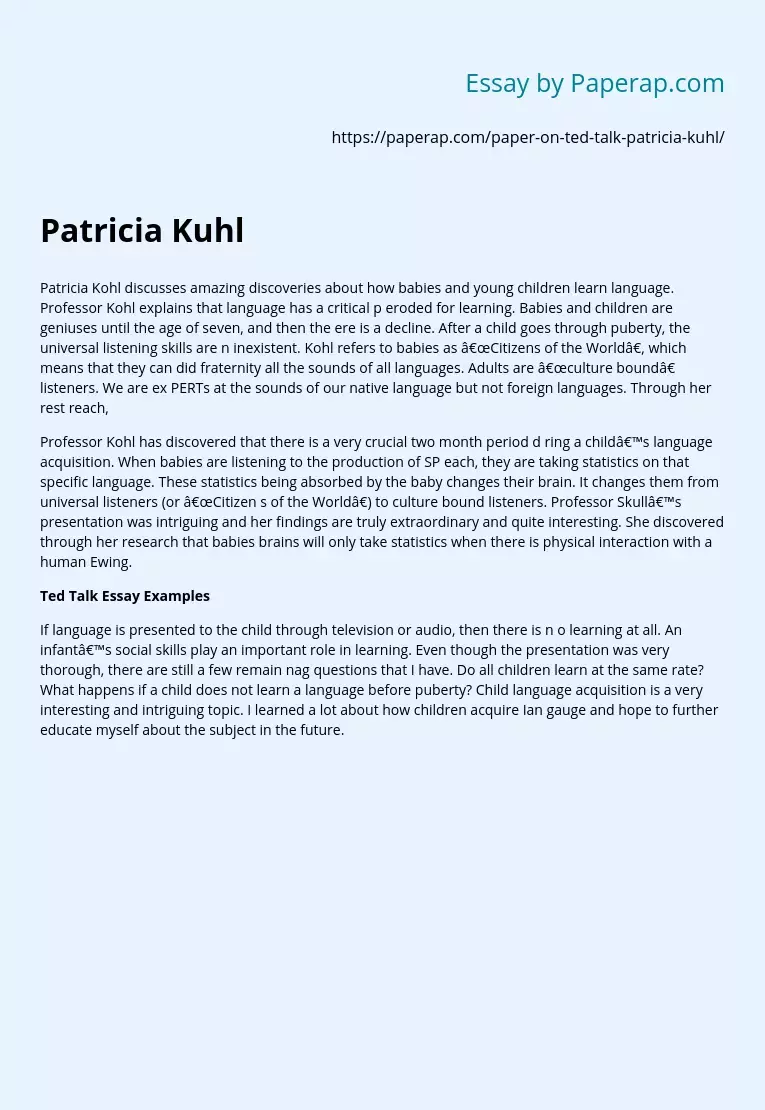How Babies Learn Language: Surprising Discoveries
Patricia Kohl discusses amazing discoveries about how babies and young children learn language. Professor Kohl explains that language has a critical p eroded for learning. Babies and children are geniuses until the age of seven, and then the ere is a decline. After a child goes through puberty, the universal listening skills are n inexistent. Kohl refers to babies as “Citizens of the World”, which means that they can did fraternity all the sounds of all languages. Adults are “culture bound” listeners.
We are ex PERTs at the sounds of our native language but not foreign languages. Through her rest reach,
Professor Kohl has discovered that there is a very crucial two month period d ring a child’s language acquisition. When babies are listening to the production of SP each, they are taking statistics on that specific language. These statistics being absorbed by the baby changes their brain. It changes them from universal listeners (or “Citizen s of the World”) to culture bound listeners.
Professor Skull’s presentation was intriguing and her findings are truly extraordinary and quite interesting. She discovered through her research that babies brains will only take statistics when there is physical interaction with a human Ewing.
Ted Talk Essay Examples
If language is presented to the child through television or audio, then there is n o learning at all. An infant’s social skills play an important role in learning. Even though the presentation was very thorough, there are still a few remain nag questions that I have.
Do all children learn at the same rate? What happens if a child does not learn a language before puberty? Child language acquisition is a very interesting and intriguing topic. I learned a lot about how children acquire Ian gauge and hope to further educate myself about the subject in the future.
How Babies Learn Language: Surprising Discoveries. (2019, Dec 05). Retrieved from https://paperap.com/paper-on-ted-talk-patricia-kuhl/

